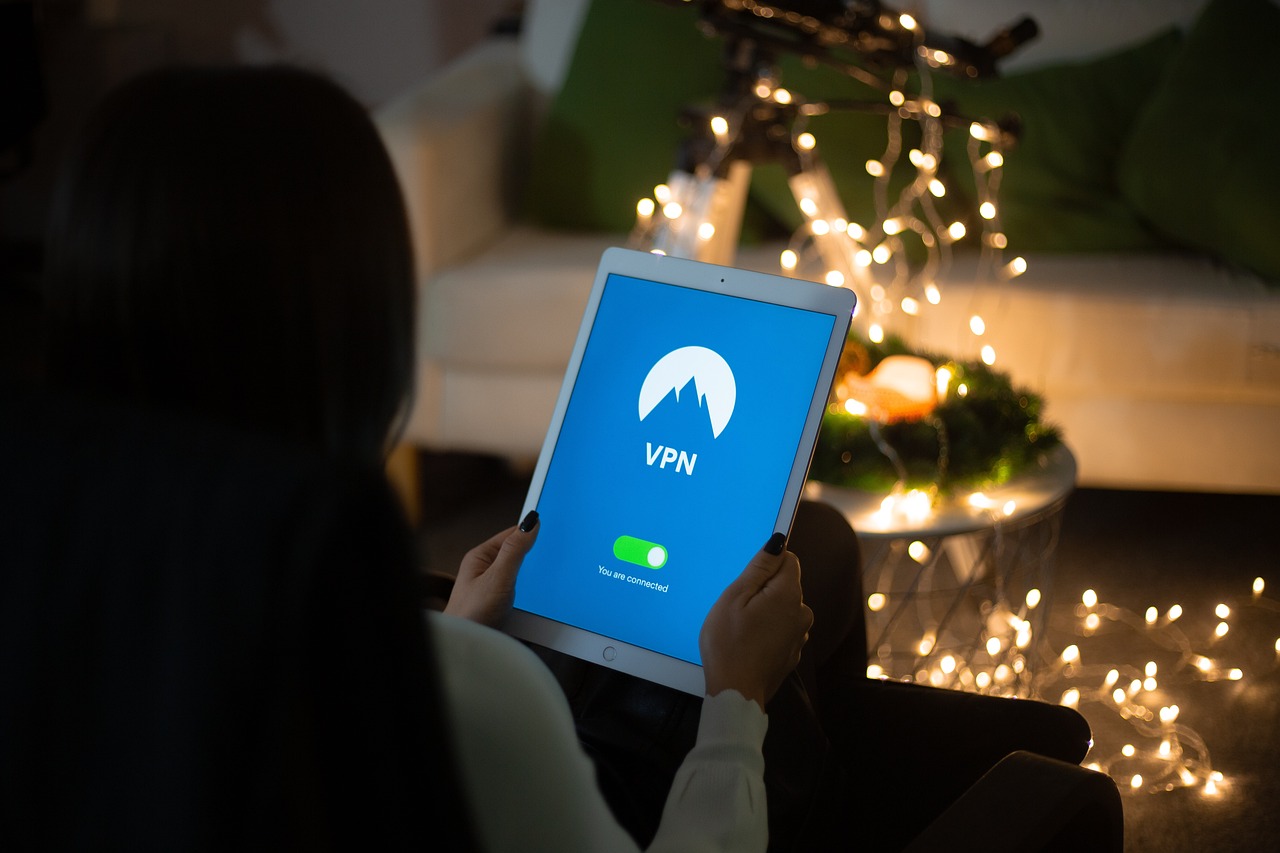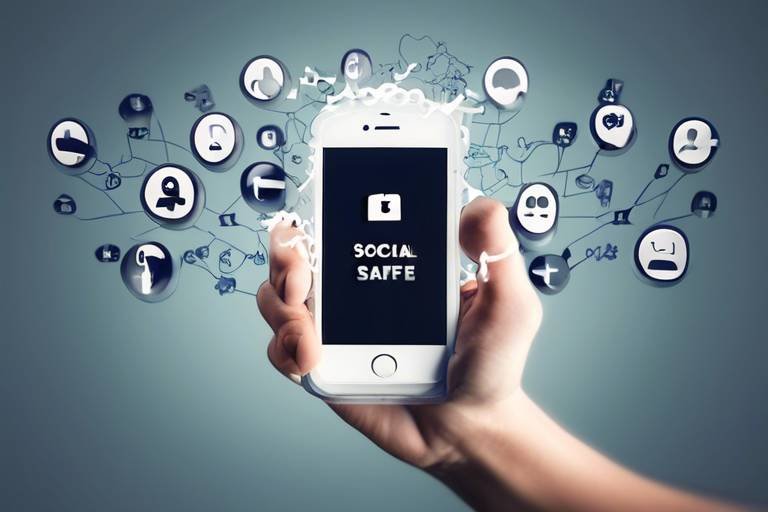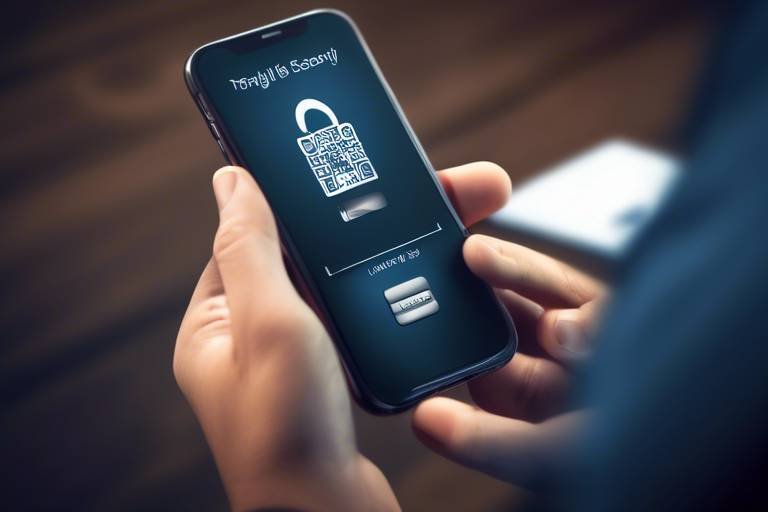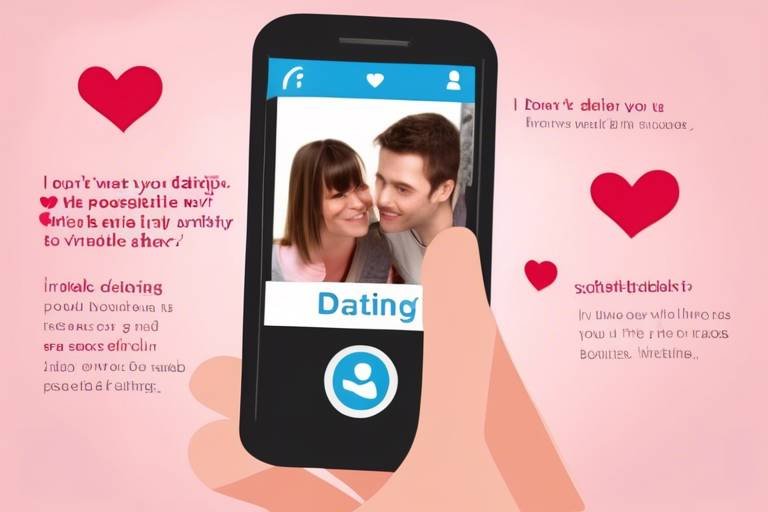The Do's and Don'ts of Online Social Interaction
This article explores essential guidelines for navigating social interactions in the digital world, highlighting best practices and potential pitfalls to enhance your online experience and relationships.
Online etiquette is crucial for fostering respectful interactions. In a world where a simple tweet or comment can spark a wildfire of reactions, understanding the fundamental principles of digital communication becomes paramount. Think of online etiquette as the unwritten rules of a digital playground. Just like in real life, there are ways to interact that promote kindness and understanding, while others can lead to misunderstandings and hostility. Here are some key principles to keep in mind:
- Be Respectful: Treat others as you would like to be treated. This golden rule applies just as much online as it does in person.
- Think Before You Post: Consider the impact of your words. A moment of reflection can prevent a lifetime of regret.
- Stay Open-Minded: Embrace different perspectives. The beauty of the internet is its diversity, and being open to new ideas enriches your experience.
Engaging positively with others online can build strong relationships. Imagine walking into a room full of people; your energy can set the tone for the entire gathering. The same goes for online spaces. By contributing positively to discussions, you can create an inviting atmosphere that encourages others to join in. Simple acts like complimenting someone's post, sharing helpful resources, or even just saying "thank you" can go a long way. Remember, positivity is contagious! Here are some effective ways to contribute:
- Offer Support: Whether it’s a simple "I agree" or a more thoughtful comment, showing support can uplift others.
- Share Knowledge: If you have expertise in a particular area, don’t hesitate to share it. Your insights might be exactly what someone else needs!
- Encourage Dialogue: Ask questions and invite others to share their thoughts. This not only enriches the conversation but also fosters a sense of community.
Negativity can quickly escalate online. It’s all too easy to fall into the trap of complaining or criticizing others, especially when emotions run high. However, spreading negativity can have dire consequences, not just for individuals but for entire communities. Think of it as throwing a rock into a still pond; the ripples can affect everyone. Avoid harmful comments and remember that behind every screen is a real person with feelings. Instead, focus on constructive criticism and solutions. Your words have power—use them wisely!
Respecting others' privacy is paramount in online interactions. In a digital age where everything is interconnected, safeguarding personal information is more important than ever. Think of privacy settings as your personal fortress; they protect you from unwanted intrusions. Always be mindful of what you share and with whom. Before posting something that involves others, consider how they might feel about it. This not only shows respect but also fosters trust within your online community.
Oversharing can lead to unwanted consequences. While it’s great to connect with others, revealing too much personal information can expose you to risks such as identity theft or harassment. It’s like leaving your front door wide open in a busy neighborhood; you never know who might take advantage of it. To maintain a safe online presence, always think twice before sharing sensitive details. Here are some guidelines to help you:
- Limit Personal Details: Avoid sharing your address, phone number, or sensitive financial information.
- Be Cautious with Photos: Think about the context of photos you share; what might seem harmless could be used against you.
- Check Privacy Settings: Regularly review your privacy settings on social media platforms to ensure you’re comfortable with who can see your information.
Authenticity fosters trust in online interactions. In a world filled with curated images and highlight reels, being genuine can set you apart. It’s like a breath of fresh air in a stuffy room; people are drawn to authenticity. Share your true self, including your passions, struggles, and victories. When you’re real, others will feel more comfortable being real with you, creating deeper connections. Remember, it’s okay to be vulnerable; it’s part of being human.
Cyberbullying is a serious issue that affects many. It’s not just a buzzword; it’s a reality that can have devastating impacts on individuals. Standing against cyberbullying is crucial for promoting a healthier online community. If you see someone being bullied, don’t just scroll past; speak up! Your voice can make a difference. Remember, kindness and support can go a long way in combating negativity and fostering a sense of belonging.
Active listening enhances communication. In online discussions, it’s easy to skim through comments and jump to conclusions. However, taking the time to truly listen can transform your interactions. Think of it as tuning into a favorite song; when you really listen, you appreciate the nuances and emotions behind it. Techniques like asking clarifying questions and summarizing what others say can deepen your understanding and connection. So, the next time you’re in a discussion, remember to listen as much as you speak!
Q1: What is online etiquette?
A1: Online etiquette refers to the set of rules and guidelines that govern respectful and appropriate behavior in digital communications.
Q2: How can I engage positively online?
A2: You can engage positively by offering support, sharing knowledge, and encouraging dialogue in discussions.
Q3: What should I avoid sharing online?
A3: Avoid sharing sensitive personal information, such as your address, phone number, or financial details.
Q4: How can I combat cyberbullying?
A4: Speak up if you witness cyberbullying, support the victim, and report the behavior to the appropriate platform or authority.

Understanding Online Etiquette
This article explores essential guidelines for navigating social interactions in the digital world, highlighting best practices and potential pitfalls to enhance your online experience and relationships.
In today’s fast-paced digital landscape, understanding online etiquette is more important than ever. Just like in face-to-face interactions, the way we communicate online can significantly impact our relationships and the overall atmosphere of online communities. So, what exactly does online etiquette entail? It encompasses a set of unwritten rules that guide our behavior and interactions on various platforms, from social media to forums.
One of the fundamental principles of online etiquette is respect. This means treating others as you would like to be treated. It’s about being considerate of others' feelings, opinions, and privacy. For instance, when engaging in discussions, it’s essential to acknowledge different viewpoints and respond thoughtfully. This not only fosters a positive environment but also encourages healthy debates and discussions.
Another critical aspect is clarity in communication. Online messages can often be misinterpreted due to the lack of non-verbal cues. Therefore, it’s vital to express your thoughts clearly and concisely. Using proper grammar, punctuation, and spelling can make a big difference in how your message is perceived. Remember, a well-structured message is more likely to be received positively than one filled with typos and unclear expressions.
Furthermore, being mindful of your tone is crucial. Sarcasm or humor can easily be lost in translation in written form. To avoid misunderstandings, consider how your words might come across to someone who doesn’t know you personally. It’s often beneficial to err on the side of caution and keep your tone friendly and inviting.
Additionally, it’s essential to be aware of the context in which you are communicating. Different platforms have varying norms and cultures. For example, the language and style appropriate for a professional LinkedIn post would differ greatly from a casual tweet or an Instagram story. Adapting your communication style to fit the platform can enhance your interactions and make them more effective.
Here are some quick tips to keep in mind regarding online etiquette:
- Always think before you post—consider the impact of your words.
- Be respectful of others' opinions, even if you disagree.
- Use emojis and GIFs sparingly to convey tone but ensure they match the context.
- Avoid all caps, as it can be interpreted as shouting.
In summary, mastering online etiquette is about being respectful, clear, and context-aware in your communications. By following these guidelines, you not only enhance your online interactions but also contribute to a more positive and engaging digital environment for everyone.
Here are some frequently asked questions regarding online etiquette:
- What should I do if I encounter rude behavior online? - It’s best to avoid engaging with negativity. Instead, report the behavior to the platform or simply disengage from the conversation.
- How can I ensure my posts are respectful? - Take a moment to review your message before posting. Ask yourself if it’s something you would say in person.
- Is it okay to share someone else’s content? - Yes, but always give credit to the original creator and ensure you’re sharing in a respectful manner.

Do: Engage Positively
When it comes to online interactions, positivity is your best friend. Engaging positively with others can create a ripple effect, enhancing not just your own experience but also the experiences of those around you. Think of it like throwing a pebble into a pond; the ripples spread out, reaching far beyond the initial splash. Whether you're commenting on a friend's post, participating in a forum discussion, or simply sharing your thoughts on social media, your attitude can set the tone for the entire conversation.
So, how can you ensure that your online presence is a beacon of positivity? First and foremost, always aim to be supportive and encouraging. If someone shares a personal achievement, don’t hesitate to congratulate them! A simple “Great job!” or “That’s amazing!” can make someone's day and foster a sense of community. Additionally, when engaging in discussions, try to focus on constructive feedback rather than criticism. Instead of saying, “This is wrong,” you might say, “Have you considered this perspective?” This not only opens the door for dialogue but also shows that you respect the other person's viewpoint.
Another effective way to engage positively is by sharing uplifting content. Whether it’s a motivational quote, a funny meme, or an inspiring story, spreading joy through your posts can brighten someone’s day. Remember, the internet can sometimes feel like a dark place, so be the light that others can turn to. Furthermore, actively participating in community events, such as online challenges or charity drives, can amplify your positive engagement. Not only do these activities bring people together, but they also create a sense of belonging and purpose.
Moreover, it’s important to recognize the impact of your words. Online communication lacks the tone and body language we rely on in face-to-face interactions, so be mindful of how your messages might be interpreted. A well-placed emoji or a friendly tone can go a long way in conveying warmth and sincerity. Remember, the goal is to foster connections, and a little kindness can help bridge the gap between strangers.
To sum it up, engaging positively online is about creating a welcoming atmosphere where everyone feels valued and heard. By being supportive, sharing uplifting content, and being mindful of your tone, you can contribute to a more positive digital landscape. So, the next time you log in, ask yourself: How can I spread a little sunshine today?
- What are some examples of positive engagement online?
Examples include complimenting someone on their achievements, sharing helpful resources, and participating in constructive discussions. - How can I handle negativity in online interactions?
Focus on responding with positivity, avoid engaging in arguments, and consider reporting harmful behavior to maintain a healthy environment. - Why is positivity important in online communities?
Positivity fosters a supportive atmosphere, encourages open communication, and helps build strong relationships among community members.

Don't: Spread Negativity
In the vast landscape of the internet, negativity is like a wildfire—it spreads quickly and can leave destruction in its wake. Whether it’s a harsh comment on a social media post or a dismissive reply in a forum, negative interactions can escalate and create a toxic environment. So, why should we avoid spreading negativity online? For starters, it can harm relationships, tarnish reputations, and even lead to mental health issues for those on the receiving end. Imagine walking into a room full of people who are bickering and complaining. Doesn’t that just dampen the mood? The same principle applies to online spaces.
When you engage in negative behavior, you’re not just affecting the person you’re targeting; you’re also influencing the community around you. Other users may feel uncomfortable or unwelcome, leading to a decline in participation and a loss of valuable conversations. It’s akin to throwing a stone into a calm lake—the ripples can reach far beyond the initial splash. Instead of contributing to a cycle of negativity, consider how you can uplift others and foster a sense of community. Here are some ways to shift your mindset:
- Think Before You Type: Always take a moment to reflect on your words. Are they constructive or merely critical?
- Offer Support: If you disagree with someone, try to express your thoughts in a way that encourages dialogue rather than hostility.
- Focus on Solutions: Instead of just pointing out problems, suggest potential solutions or improvements.
Negativity can also have a ripple effect, impacting not just the individuals involved but the entire community. When negativity becomes the norm, it can discourage participation and lead to a decline in overall engagement. This is why it’s essential to cultivate a positive atmosphere online. By doing so, you not only enhance your own experience but also contribute to a healthier digital environment for everyone.
Remember, everyone has their battles, and sometimes a single negative comment can exacerbate someone’s struggles. So, let’s strive to be the light in the often dim world of online interactions. By choosing positivity, we can create a supportive network where everyone feels valued and heard. In the end, it’s about building bridges instead of walls. So, the next time you’re about to hit that send button on a negative comment, pause and ask yourself: Is this really necessary? Would I say this to someone’s face? If the answer is no, it’s probably best to keep it to yourself.
Q: Why is negativity harmful in online interactions?
A: Negativity can lead to toxic environments, harm relationships, and affect mental health. It creates discomfort and discourages participation in online communities.
Q: How can I respond to negativity online?
A: Instead of retaliating, try to address the comment constructively, or simply disengage. Focusing on positive interactions can help shift the conversation.
Q: What are some signs that an online community is becoming negative?
A: Frequent arguments, harsh criticisms, and a lack of supportive comments are indicators that negativity is permeating the community.
Q: How can I promote positivity online?
A: Engage in supportive conversations, share uplifting content, and be mindful of your language. Encouraging others can create a more welcoming environment.

Do: Respect Privacy
In our increasingly digital world, respecting privacy has become a cornerstone of healthy online interactions. It's not just about keeping your own information safe; it's about recognizing the boundaries of others as well. When you engage with people online, it's essential to remember that they have their own comfort levels regarding what they choose to share. Think about it: would you want someone to broadcast your personal details without your consent? Probably not! This is why understanding and respecting privacy is fundamental in building trust and fostering positive relationships in the digital space.
One of the first steps in respecting privacy is to familiarize yourself with the various privacy settings available on social media platforms and other online services. These settings allow users to control who sees their posts, personal information, and interactions. For instance, you might come across options like:
- Profile visibility settings
- Post audience restrictions
- Location sharing preferences
By taking the time to understand these features, you not only protect your own privacy but also show respect for others' choices. Furthermore, it's crucial to engage in conversations that respect these boundaries. If someone shares a personal story or detail, consider it a privilege that they've opened up to you. Avoid discussing their information publicly or sharing it with others without their explicit permission. This simple act of consideration can make a world of difference in how people perceive you online.
Moreover, think twice before tagging friends in photos or posts. While you might be excited about a shared experience, not everyone is comfortable being featured in someone else's content. Always ask for permission first. This small gesture goes a long way in ensuring that your friends feel safe and valued in your online interactions. In essence, respecting privacy is about creating a secure environment where everyone feels comfortable expressing themselves without fear of judgment or exposure.
Lastly, let's not forget about the importance of being mindful when it comes to sharing your own personal information. While it might feel natural to share your life online, always ask yourself: "Is this something I want everyone to know?" Consider the potential consequences of oversharing and how it could affect your relationships or even your safety. By being cautious and aware, you set a precedent for others to do the same, fostering a culture of respect and privacy in your online community.
| Question | Answer |
|---|---|
| What are privacy settings? | Privacy settings are tools provided by social media platforms that allow users to control who can see their information and posts. |
| Why is it important to respect others' privacy? | Respecting others' privacy builds trust and ensures a safe online environment where individuals feel comfortable sharing their thoughts. |
| How can I protect my own privacy online? | Be mindful of what you share, use privacy settings effectively, and avoid oversharing personal information. |

Don't: Overshare Personal Information
In today's digital landscape, where social media and online interactions are part of our daily lives, it's crucial to understand the risks associated with oversharing personal information. Imagine walking into a crowded room and announcing your address, phone number, and personal secrets to everyone around you. Sounds absurd, right? Yet, many individuals unknowingly do this online, exposing themselves to potential threats. Oversharing can lead to identity theft, harassment, or even stalking. The internet is a vast space, and not everyone has good intentions.
Many people think that sharing their lives online is harmless, especially when they feel a sense of community with their followers. However, it's essential to remember that once something is posted online, it can be challenging to take it back. Even if you delete a post, someone might have already taken a screenshot or shared it. This permanence can create a digital footprint that you might not want to leave behind.
So, how do you navigate the fine line between sharing your life and protecting your privacy? Here are some key points to consider:
- Limit Personal Details: Avoid sharing sensitive information such as your home address, phone number, or financial details. Think of your online presence as a stage; only show what you’re comfortable with the world seeing.
- Adjust Privacy Settings: Most social media platforms offer privacy settings that allow you to control who sees your posts. Make sure to use these features to protect your information from prying eyes.
- Think Before You Post: Before sharing, ask yourself if this information could be misused. Would you be comfortable if a stranger knew this about you? If not, it’s best to keep it private.
Moreover, consider the potential consequences of oversharing. For instance, sharing your location in real-time can alert unwanted individuals about your whereabouts, making you vulnerable. Similarly, discussing personal struggles might attract unsolicited advice or negative comments that can impact your mental health. It's essential to create a safe space for yourself online, where you can express your thoughts without fear of judgment or backlash.
In conclusion, while social media and online platforms can be a great way to connect with others, it's vital to maintain a level of caution regarding what you share. Keeping your personal information private not only protects you but also allows for more meaningful connections without the risk of your privacy being compromised. Remember, the digital world is like a double-edged sword; wield it wisely!
- What constitutes oversharing? Oversharing refers to the act of disclosing too much personal information online, which can include details about your location, finances, or private life that could jeopardize your safety or privacy.
- How can I ensure my information is safe online? Use privacy settings on social media platforms, think critically about what you share, and avoid posting sensitive information that could be misused.
- What are the risks of oversharing? Risks include identity theft, harassment, and unwanted attention, as well as potential damage to relationships and personal reputation.

Do: Be Authentic
In the vast ocean of the internet, where countless voices compete for attention, being authentic can set you apart like a lighthouse guiding ships to safety. Authenticity is not just a buzzword; it’s the bedrock of meaningful connections and relationships online. When you present your true self, you invite others to do the same, creating a space where genuine interactions flourish. Think about it: how often do you scroll through social media and come across posts that feel staged or overly polished? It's like watching a movie where the actors are clearly reading from a script. Instead, we crave real stories, real emotions, and real people.
To embrace authenticity, start by sharing your personal experiences and insights. This doesn’t mean you need to spill every detail of your life; rather, focus on moments that resonate with your audience. For instance, if you’re passionate about cooking, share a story about the time you tried to make a soufflé and it flopped spectacularly. Your followers will appreciate the humor and relatability, and it opens the door for them to share their own kitchen disasters. It’s these little glimpses into your life that create connections.
Moreover, being authentic means being transparent about your intentions. If you’re promoting a product or service, don’t shy away from disclosing your affiliation. Your audience will respect your honesty and be more likely to trust your recommendations. After all, no one likes feeling duped or manipulated. When brands and influencers are upfront about their partnerships, it fosters a sense of loyalty and respect among followers.
Another key aspect of authenticity is engaging with your audience in a genuine way. Respond to comments, ask questions, and show appreciation for their input. This not only humanizes your online presence but also encourages a two-way conversation. Think of your online interactions as a dance; it’s not just about you leading but also about listening and responding to your partner’s moves. When you actively engage with your audience, you create a community where everyone feels valued.
However, authenticity does come with its challenges. In a world where social media often promotes an idealized version of life, it can be tempting to curate a perfect image. But remember, perfection is not relatable. Instead, embrace your quirks and imperfections. They make you, well, you! Your unique perspective and experiences are what draw people in and keep them coming back for more.
In summary, being authentic online is about being true to yourself and your audience. It’s about sharing your story, being transparent, engaging genuinely, and embracing your imperfections. So, the next time you log into your favorite platform, ask yourself: “Am I being my true self?” If the answer is yes, you’re on the right path to building meaningful relationships in the digital world.
- Why is authenticity important in online interactions?
Authenticity builds trust and fosters genuine connections, making interactions more meaningful. - How can I be more authentic online?
Share personal stories, engage with your audience, and be transparent about your intentions. - What are the risks of not being authentic?
Inauthenticity can lead to distrust, disengagement, and a lack of meaningful relationships.

Don't: Engage in Cyberbullying
In today's digital landscape, the ease of communication can sometimes lead to a darker side: cyberbullying. It's a term that evokes strong emotions and for good reason. Cyberbullying refers to the act of harassing, threatening, or humiliating someone using digital platforms. Unlike traditional bullying, which might occur face-to-face, cyberbullying can happen anytime and anywhere, making it particularly insidious. Imagine a scenario where you're scrolling through your social media feed, and you come across a hurtful comment directed at someone you know. It can feel like a punch to the gut, not just for the victim but for the entire online community.
One of the most troubling aspects of cyberbullying is its pervasiveness. It can manifest in various forms, including:
- Harassment: Repeatedly sending offensive messages or threats.
- Impersonation: Pretending to be someone else to damage their reputation.
- Exclusion: Intentionally excluding someone from an online group or conversation.
- Outing: Sharing someone's private information without their consent.
The impact of cyberbullying can be devastating. Victims often experience feelings of isolation, anxiety, and depression. It can even lead to severe consequences such as self-harm or suicide in extreme cases. This is why it's crucial for all of us to take a stand against it. We must create a culture where kindness and empathy prevail. But how do we do that?
First and foremost, be an ally. If you witness cyberbullying, don't remain silent. Support the victim by reaching out to them privately, offering your friendship and understanding. Additionally, report the behavior to the platform where it occurred. Most social media sites have policies in place to handle harassment and bullying, and they rely on users to help enforce these rules.
Moreover, it’s essential to educate ourselves and others about the impact of our words. Just because we can hide behind a screen doesn’t mean we should say anything without considering the consequences. Think of your words as seeds; once planted, they can grow into something beautiful or something harmful. Choose wisely.
Lastly, let's foster a culture of respect and empathy in our online interactions. Encourage friends and family to think before they post and to treat others with the same kindness they would expect in return. Remember, every time you engage online, you have the power to either uplift someone or bring them down. The choice is yours.
| Question | Answer |
|---|---|
| What should I do if I am a victim of cyberbullying? | Reach out to trusted friends or family for support, document the incidents, and report the behavior to the platform. |
| How can I help someone who is being cyberbullied? | Offer your support, listen to them, and encourage them to report the bullying. Remind them they are not alone. |
| Can cyberbullying happen anonymously? | Yes, many forms of cyberbullying can be carried out anonymously, which can make it more challenging to address. |
| What are the long-term effects of cyberbullying? | Victims may experience long-term emotional and psychological effects, including anxiety, depression, and low self-esteem. |

Do: Practice Active Listening
Active listening is more than just hearing words; it’s about fully engaging with the speaker and understanding their message. In the fast-paced world of online interactions, where messages can often be misinterpreted, honing your active listening skills can make a significant difference in the quality of your conversations. Imagine you're in a bustling café, trying to hear your friend over the clattering of dishes and chatter. You lean in, focus, and nod, showing that you’re not just present physically but mentally as well. That’s the essence of active listening!
To truly practice active listening online, you need to be intentional about your focus. Here are some effective techniques to enhance your skills:
- Minimize Distractions: Just like in a face-to-face conversation, eliminate distractions. Close unnecessary tabs, silence your phone, and give your full attention to the discussion at hand.
- Reflect and Clarify: After someone has shared their thoughts, reflect back what you’ve heard. For example, you might say, “So what you’re saying is…” This not only shows that you’re engaged but also helps clarify any misunderstandings.
- Ask Open-Ended Questions: Encourage deeper conversation by asking questions that require more than a yes or no answer. For instance, “What led you to that conclusion?” can open up a dialogue that enriches the interaction.
By implementing these techniques, you not only enhance your understanding of the conversation but also demonstrate respect for the speaker. This mutual respect fosters a sense of community and belonging in online spaces, making everyone feel valued. Think of it like a dance; when both partners are in sync, the performance is captivating. However, if one partner is out of step, the entire routine can falter.
Moreover, practicing active listening can lead to more meaningful connections. When you show that you genuinely care about what others have to say, they are more likely to reciprocate. This creates a cycle of positive engagement, where everyone feels heard and appreciated. In the vast digital landscape, where interactions can often feel superficial, being a good listener can set you apart and help you build lasting relationships.
In conclusion, active listening is a vital skill that can significantly enhance your online interactions. By being present, reflecting on what others say, and asking thoughtful questions, you can create a more engaging and respectful online environment. So, the next time you find yourself in an online discussion, remember: it’s not just about what you say, but how well you listen that truly matters.
- What is active listening? Active listening is the practice of fully concentrating, understanding, responding, and remembering what is being said in a conversation.
- How can I practice active listening online? You can practice by minimizing distractions, reflecting on what others say, and asking open-ended questions to encourage deeper dialogue.
- Why is active listening important in online interactions? It helps prevent misunderstandings, fosters respectful communication, and builds stronger relationships in digital spaces.
Frequently Asked Questions
- What is online etiquette and why is it important?
Online etiquette refers to the set of guidelines that govern respectful and considerate behavior in digital interactions. It's essential because it helps create a positive environment where everyone feels valued and respected. Just like in face-to-face conversations, good manners online can lead to better relationships and a more enjoyable experience for all.
- How can I engage positively in online discussions?
Engaging positively involves contributing thoughtful comments, offering support, and being open to different perspectives. You can ask questions, share helpful resources, and show appreciation for others' contributions. Think of it as being a good friend in a group chat—your positivity can uplift the entire conversation!
- What are the risks of oversharing personal information online?
Oversharing can expose you to various risks, including identity theft, cyberbullying, and unwanted attention. It's crucial to think before you post personal details, like your address or phone number. Remember, the internet is like a public park; once you say something, it can be heard by anyone passing by!
- How can I respect others' privacy while interacting online?
You can respect privacy by being mindful of what you share and ensuring that you have permission before discussing someone else's information. Adjust your privacy settings on social media platforms and avoid tagging others in posts without their consent. It’s all about treating others’ personal space with the same care you’d expect for your own!
- What should I do if I encounter cyberbullying?
If you encounter cyberbullying, it's important to report it to the platform and block the offender. Don't engage with them, as it can escalate the situation. Reach out to someone you trust for support, whether it's a friend or a family member. Standing up against cyberbullying helps create a safer online community for everyone.
- How can I practice active listening in online conversations?
Active listening online involves paying close attention to what others are saying, responding thoughtfully, and asking clarifying questions. Avoid distractions and take the time to understand different viewpoints. It’s like tuning into a podcast—you want to catch every detail to fully appreciate the conversation!
- Why is authenticity important in online interactions?
Being authentic builds trust and fosters genuine connections. When you present yourself honestly, others are more likely to reciprocate, leading to deeper relationships. Think of it as being a breath of fresh air in a crowded room; authenticity stands out and invites others to be real with you!



















